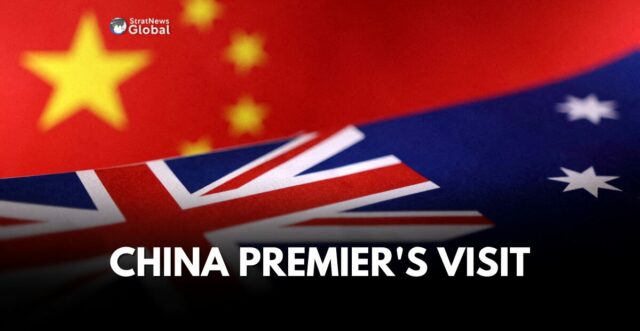When China’s Premier Li Qiang visits New Zealand and Australia this week, regional security concerns will overshadow the profitable trade ties. This visit marks a significant shift in mood compared to the last Chinese premier’s visit seven years ago.
Li will arrive in New Zealand on Thursday, before travelling to Australia over the weekend, according to China’s foreign ministry. Australia, China’s largest trading partner, is the top supplier of iron ore to China. There is also competition from Western security allies for Australia’s rare earths, essential for electric vehicles and defence.
New Zealand, the first Western nation to sign a free trade agreement with China in 2008, maintains China as its largest export market for milk and agriculture products. The two-way trade between them amounts to nearly NZ$38 billion ($23 billion). New Zealand Prime Minister Christopher Luxon sees Li’s visit as a business opportunity, highlighting potential deals in trade, energy, and climate change, despite the presence of some differences.
NZ Shifts Stand
New Zealand has shifted from being a moderate voice on China to a more cautious stance. This year, it has criticised Beijing for hacking its parliament and highlighted the growing threat China poses to security in the Pacific. According to Jason Young, director of the New Zealand Contemporary China Research Centre, the relationship has evolved to focus on resilience and reducing over-dependency since 2017.
China’s ambassador, Wang Xiaolong, recently cautioned against groundless accusations that could erode the trust between the two nations.
Can Pandas Revive Trust?
In Australia, Li will visit Adelaide first, where the return of a panda pair to China is anticipated. The panda diplomacy and a lunch with wine exporters, recently excluded from the Chinese market, aim to smooth over political disputes. These disputes led to the suspension of A$20 billion ($13 billion) in Australian agriculture and mineral exports between 2020 and last year.
A recent poll by the Australia China Relations Institute indicated deep public mistrust, with 74% of respondents believing Australia is too economically reliant on China and 71% seeing Beijing as a security threat. Australian Prime Minister Anthony Albanese has acknowledged that Li’s visit signifies stabilised ties, despite ongoing competition for influence in the Pacific and tense defence encounters.
Richard McGregor, a senior fellow at the Lowy Institute, notes that China values Australia as a reliable commodity supplier but is keen to prevent any restriction on access to critical minerals. He questions how Australia could cut off its biggest customer and whether its allies would compensate for the lost income and investment.
Trade Matters
In Western Australia, Li is expected to tour Chinese company Tianqi Lithium’s processing plant and Australian mining and energy company Fortescue. Prime Minister Albanese, in an opinion piece in The Australian, emphasised the importance of trade with China and the government’s ambition to meet global demand for critical minerals with a “made in Australia” policy. He stressed that Australia’s foreign investment framework would be more efficient, transparent, and effective at managing risk.
During a business leaders roundtable, Australia China Business Council president David Olsson expressed hopes that China’s remaining trade ban on seafood would be lifted and visa processes eased, facilitating reconnections for Australian businesses in China.
With Inputs from Reuters
Research Associate at StratNewsGlobal, A keen observer of #China and Foreign Affairs. Writer, Weibo Trends, Analyst.
Twitter: @resham_sng





